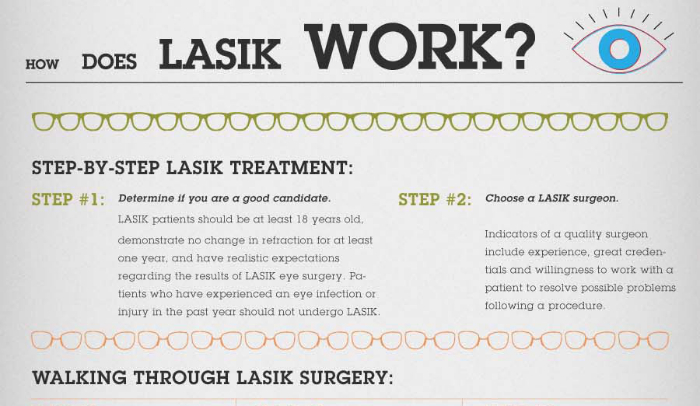Is SMILE Eye Surgical Treatment Appropriate For You? Key Insights And Considerations To Keep In Mind
Is SMILE Eye Surgical Treatment Appropriate For You? Key Insights And Considerations To Keep In Mind
Blog Article
Uploaded By-Bridges Reece
If you're considering SMILE eye surgical procedure, ponder this: are you prepared to embrace possible visual flexibility, or does the idea of any kind of risks make you wait? Your choice will depend upon a careful balance of weighing the benefits versus the uncertainties. read article to delve deeper into the nuances of SMILE surgery to make an enlightened option that lines up with your visual objectives.
Recognizing SMILE Eye Surgery
When considering SMILE Eye Surgery, it is very important to understand the procedure and its benefits. SMILE, which stands for Little Laceration Lenticule Extraction, is a minimally invasive laser eye surgical procedure that deals with usual vision problems like nearsightedness (nearsightedness).
Throughout the treatment, your eye cosmetic surgeon will use a femtosecond laser to create a little incision in your cornea. Through this incision, a little disc of tissue called a lenticule is gotten rid of, reshaping the cornea and remedying your vision.
Among the essential benefits of SMILE Eye Surgery is its fast recovery time. Numerous individuals experience boosted vision within a day or two after the procedure, with very little pain.
Additionally, SMILE is understood for its high success price in providing long-term vision improvement. Unlike LASIK, SMILE doesn't call for the creation of a flap in the cornea, reducing the danger of complications and permitting an extra secure corneal framework post-surgery.
Understanding the treatment and its advantages is critical when considering SMILE Eye Surgery for vision improvement.
Pros and Cons of SMILE
Considering SMILE Eye Surgery for vision modification includes various benefits and possible drawbacks.
One of the major pros of SMILE is its minimally invasive nature, as it involves a little laceration and commonly causes quick healing times. check over herea is additionally recognized for causing marginal discomfort and dry eye signs and symptoms post-surgery contrasted to other vision correction methods. In addition, SMILE has actually been revealed to supply superb visual results, with several patients accomplishing 20/20 vision or much better.
On the other hand, a potential disadvantage of SMILE is that it may not be suitable for individuals with serious refractive errors, as the therapy range is rather minimal compared to LASIK. One more consideration is that the understanding curve for doctors implementing SMILE can influence the availability of experienced providers in certain locations.
It is essential to evaluate these advantages and disadvantages very carefully when making a decision if SMILE is the ideal selection for your vision adjustment needs.
Identifying Qualification for SMILE
To establish if you're eligible for SMILE eye surgery, your ophthalmologist will certainly perform a thorough examination of your eye health and wellness and vision demands. Throughout this analysis, elements such as the stability of your vision prescription, the thickness of your cornea, and the overall wellness of your eyes will certainly be examined.
Typically, candidates for SMILE more than 22 years old, have a stable vision prescription for at the very least a year, and have healthy and balanced corneas without problems like keratoconus.
Your optometrist will certainly also consider your overall eye health, any type of existing eye conditions, and your way of living needs to determine if SMILE is the best choice for you. It's essential to communicate any type of particular visual demands or worries you may have throughout this assessment to make sure that the therapy lines up with your expectations.
If you aren't qualified for SMILE, your eye doctor might suggest alternate vision adjustment alternatives that better fit your specific demands and eye health condition.
Final thought
Eventually, deciding whether SMILE eye surgery is right for you calls for mindful factor to consider of your private eye health and aesthetic requirements. Speak with your optometrist to determine your qualification for the procedure and evaluate the prospective advantages and disadvantages. Keep in mind to connect any type of problems or concerns you may have throughout the analysis procedure to make an informed decision about your vision modification alternatives.
